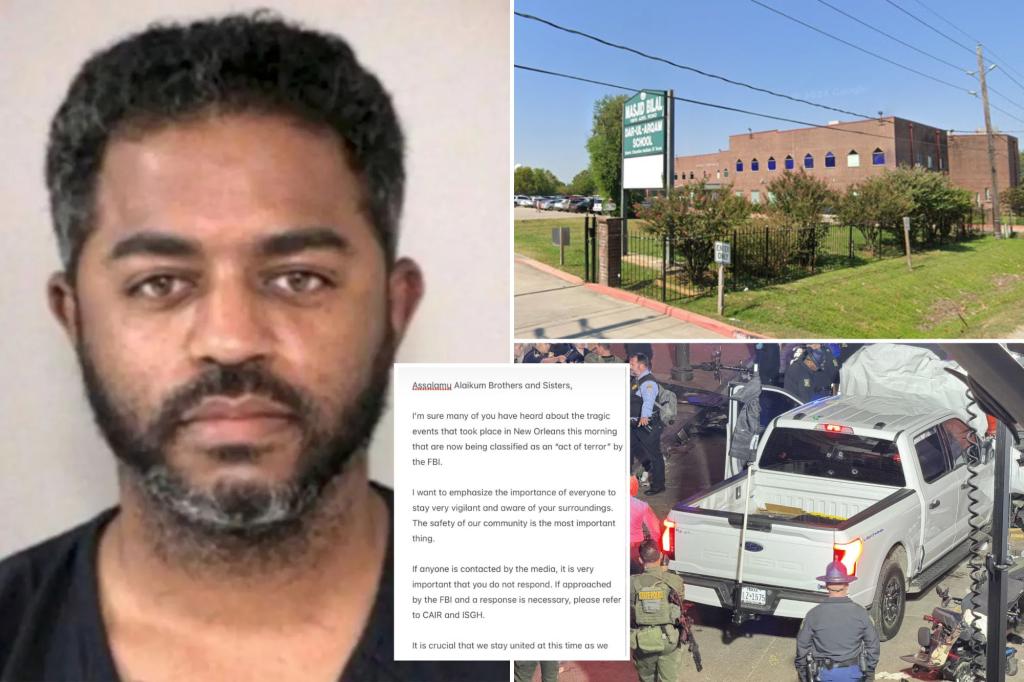In the aftermath of terrorist Shamsud-Din Jabbar’s attack on Bourbon Street in New Orleans, the local mosque in his Houston community, Masjid Bilal, has urged its members to avoid speaking with the media and to refer any potential FBI inquiries to the controversial Council on American-Islamic Relations (CAIR). The mosque emphasized the importance of staying united and condemning Jabbar’s heinous acts, and warned congregants not to respond to any media requests but to instead direct them to CAIR and ISGH if necessary.
CAIR has faced its fair share of controversies, leading to the White House severing ties with the organization last year after one of its co-founders expressed happiness over Hamas attacks on Israel. In addition, CAIR was ordered by a judge to reveal its funding sources after a defamation suit against an ex-worker backfired. The former chapter leader of CAIR was accused of carrying out a defamation campaign against the organization, implying that it was funded by foreign governments and terrorist organizations. It remains unclear if Jabbar, who reportedly converted to Islam at an early age, ever attended Masjid Bilal.
Jabbar’s ideologies have been scrutinized following his New Year’s Day rampage where he killed 14 people. He flew an ISIS flag on the Ford pickup used in the attack and posted videos online pledging allegiance to the Islamic terror group leading up to the incident. The mosque’s call to its members to remain united in condemning Jabbar’s actions comes in the wake of the community grappling with the repercussions of his terrorist attack.
The response from Masjid Bilal to urge its members to avoid speaking to the media and direct any FBI inquiries to CAIR has raised further questions about the relationship between the mosque and the controversial organization. With CAIR being ordered to reveal its sources of funding and facing criticism for its ties to foreign governments and terrorist organizations, the connection between the mosque and CAIR adds another layer of complexity to the situation. The mosque’s emphasis on unity following Jabbar’s attack reflects a desire to disavow his actions and stand in solidarity against terrorism.
As the investigation into Jabbar’s background and motivations continues, the community grapples with the implications of his ties to ISIS and his conversion to Islam. The mosque’s statement serves as a reminder of the importance of condemning violence and terrorism, even as the community navigates the fallout from Jabbar’s attack. With Jabbar’s ideologies under scrutiny and his ties to ISIS becoming more apparent, the community faces difficult questions about how to address and prevent similar acts of terrorism in the future.
In the wake of Jabbar’s attack and the mosque’s response, the community is forced to confront difficult issues surrounding terrorism, radicalization, and the role of organizations like CAIR. The mosque’s call for unity and condemnation of Jabbar’s actions reflects a desire to distance the community from his terrorist acts. As the investigation continues and more information comes to light, the community will continue to grapple with the aftermath of Jabbar’s attack and the broader implications for their community and society as a whole.


